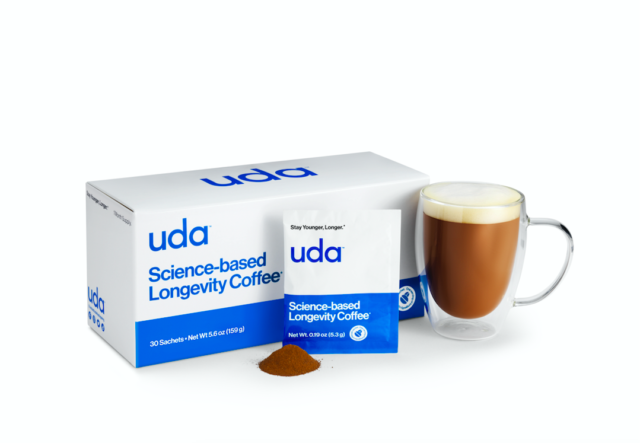In a new documentary titled Limitless for the streaming site, Disney Plus, Hollywood star Chris Hemsworth sets out to complete a series of challenges and arduous tasks to test the faculties of his body, with the intention of staying sharper, stronger and most importantly, healthier for longer. The field of Longevity – the study of increasing the time that we remain healthier – within genetic and biological research is one that has accelerated exponentially over the past decade. Advances in the field have allowed consumer products to harness the findings of said research, but to what extent is the information reliable? uda, the world’s first consumer beverage engineered to help us live longer, – developed by scientists and professors at Harvard, Oxford and Cambridge – has provided a list of tips to preserve our youth that go beyond healthy sleeping schedules and leafy greens.
With self-care serving as one of the most powerful growth engines for the global economy, growing to an industry worth £4.4 trillion, it is essential that the information provided to consumers can be trusted. A study by Groupon revealed that the average woman will spend up to £200,000 in her lifetime on her appearance. Whilst there’s nothing wrong with a little retail therapy, the thousands that Brits are plunging into wellness and beauty routines in the name of ‘self-care’ comes at not only at a financial expense but, as it stands, the formulas found in our bottles of creams and serums do little to actually target what we’re so frantic to preserve – which is our youth. Whilst products such as retinol – one of the most purchased skincare aides – in addition to hyaluronic acid, tea tree oil and niacinamide – can help the appearance of wrinkles, a study from Harvard concludes that the best way to preserve a youthful appearance doesn’t come down to products used but instead lifestyle factors – such as not smoking and staying out of the sun.
By taking control of our lifestyle choices at a younger age we can now try to control how we experience our later years, avoiding the early decay of our cells and effectively syncing our dynamic biological age to be in line – or younger – than our standing chronological age.
1. Prioritising our microbiome composition
The human gut microbiome produces a functional complex in our bodies – it stimulates the immune system, breaks down potentially toxic food compounds and synthesises certain vitamins and amino acids. By eating plenty of fibres and taking probiotics, we can ensure that our gut microbiome is being optimised, meaning that it can protect us from certain bacterial infections.
Similar to fingerprints, no two gut microbiomes are alike, but there is a common group of microbe types found in everyone. Studies from the National Institute of Ageing have found that people whose gut microbiomes had grown more unique with age were able to walk faster and had better overall mobility than their peers with less microbiome divergence.
2. Hitting the sauna
Studies have found that those who sauna regularly have lower heart disease than others, because of the cardiovascular strain that is relieved during sauna sessions – one can reduce the rate of heart attack.
Another benefit to regular sweat-sessions is the act of detoxing. Some toxins found in microplastics cannot be alleviated by our kidneys or bowels – so the only way to rid them is by sweating them out. Studies conducted in eastern Finland have shown that compared to men who only used the sauna once per week, moderate sauna users (2-3 times per week) are 22% less likely to experience sudden cardiac death, and frequent users (4-7 times per week) are 63% less likely to experience sudden cardiac death.
3. Bleed it out
Women tend to live longer than men – on average. Yet, whilst this is traditionally attributed to men’s lifestyle factors – how they are more likely to smoke, eat fattier foods and drink more alcohol – new studies suggest that one factor that contributes to women’s longer life-spans is their menstrual cycles. As most women traditionally have 480 periods in their lifetimes, the regular dispelling of blood also means that women are more likely to rid themselves of iron – which contributes to heart disease.
Men can also mitigate this risk by donating blood. Studies have found that after additional adjustment for the internal healthy donor effect, each additional annual donation was associated with a 7.5% decreased mortality risk.




